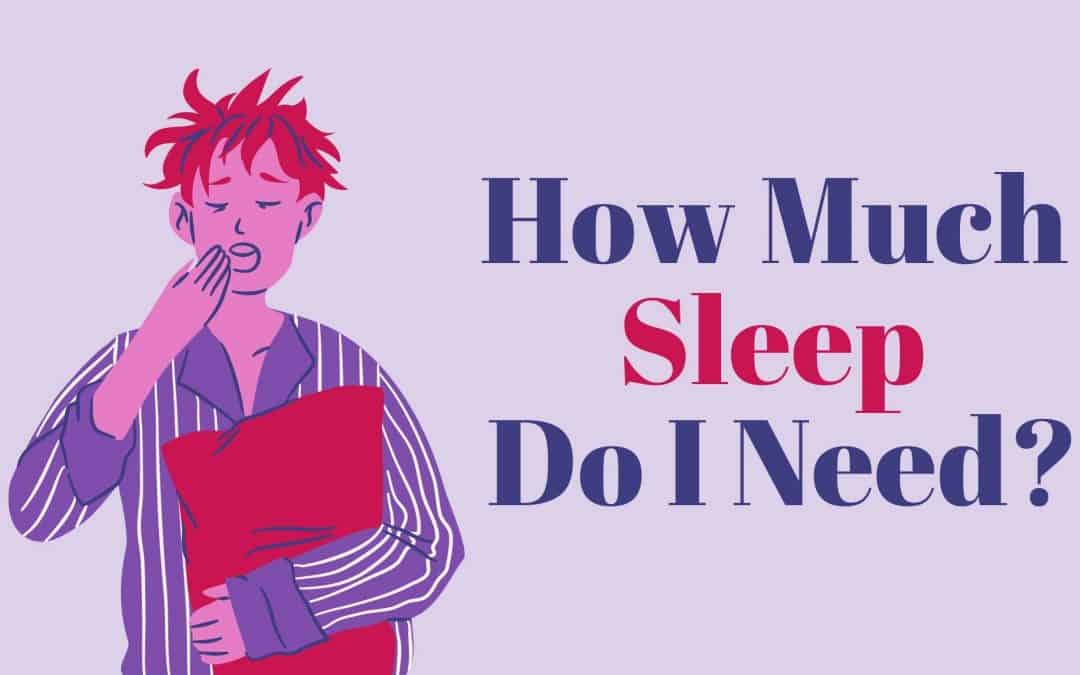Sleep is an essential function for people of all ages. Sleep replenishes the body and brain which is important (and necessary) for the many systems that sustain us. You are likely familiar with the impact of not getting enough sleep: fatigue, difficulty focusing and completing tasks, irritability etc. But how much sleep is really needed?
According to the National Sleep Foundation, adults should receive 7 to 9 hours of sleep per night. But 35% of adults are receiving less than this recommended amount. Additionally, 50 to 70 million adults have a sleep disorder which reduces the possibility of receiving quality sleep. This can produce unpleasant symptoms that take a toll on daily health and wellness. There are useful strategies you can practice to enhance sleep duration and quality which can transform your relationship with sleep!
How Much Sleep is Really Needed?
The amount of time needed for sleep is categorized by age. For adults this includes the following recommendations:
- 18-64: 7-9 hours
- 65+: 7-8 hours
This range of hours provided is important because the ideal amount of sleep can differ from person to person. It can depend on a variety of factors including overall health, lifestyle, and your sleep patterns. Thinking about the following questions can be a useful way to help determine how much sleep you need:
- With 7 hours of sleep, do you feel productive and have energy throughout the day? Or have you noticed that you could use a few more hours?
- Do you need to expend high levels of energy and alertness throughout the day?
- Do you rely on caffeine on a daily basis?
- Are you experiencing (or have you in the past) any issues around sleeping?
- When do you feel like you’ve had the most restful sleep?
Reflecting on these questions can help you think about if you need to be getting more sleep and other ways you can enhance your sleep so that you have adequate energy the following day. It is important to take the time and explore what your sleep needs are. Making simple adjustments like adding an extra hour can make a notable difference in how you feel.
Tips to Enhance Quality of Sleep
There are ways you can reshape your sleep habits and create greater conditions for quality sleep including:
- Establish a Sleep Routine: creating and following a sleep schedule is a great starting place. Sleeping and waking at the same time each day/night helps the body’s circadian rhythm – the natural process that the body uses to regulate the sleep-wake cycle.
- Create Comfortable Conditions: ensuring that you are in the most optimal environment for good sleep is important. Creating optimal conditions includes having comfortable bedding, lighting, white noise if that is helpful, using essential oils for aromatherapy etc. These practices help create a calming space that helps you relax into sleep.
- Avoid Screens: being on your device (smartphone, laptop, television etc.) can impact sleep. Exposure to the light from these screens can actually make it more challenging to fall asleep. Additionally, it is easy to remain on devices for longer than you intended and to get distracted. The National Sleep Foundation recommends avoiding screens at least 30 minutes prior to bed. A healthier alternative to screens in bed could be reading!
- Increase Physical Activity: increasing physical activity in daily life can help sleep in a few ways. Exercise provides the body with more energy, is a great way to process stress, and enhances mood which are all things that can improve sleep. Increasing physical activity can be as simple as taking daily walks, stretching, or participating in other outdoor activities.
- Maximize Use of Sleep Accessories: this includes using eye masks and earplugs which are designed to specifically reduce exposure to light and noise. Light and noise are common ways that sleep is disrupted or delayed. Maximizing the use of these accessories can help provide uninterrupted and restful sleep.
These practices can help you build and benefit from a sleep routine. A routine can transform the quality of sleep you receive which has countless benefits: more energy, focus, enhanced mood, and general wellness throughout the day!
Have you experienced sleep issues? Whether it’s insomnia or obstructive sleep apnea, our specialists are here to help. Contact us today to schedule an appointment.

